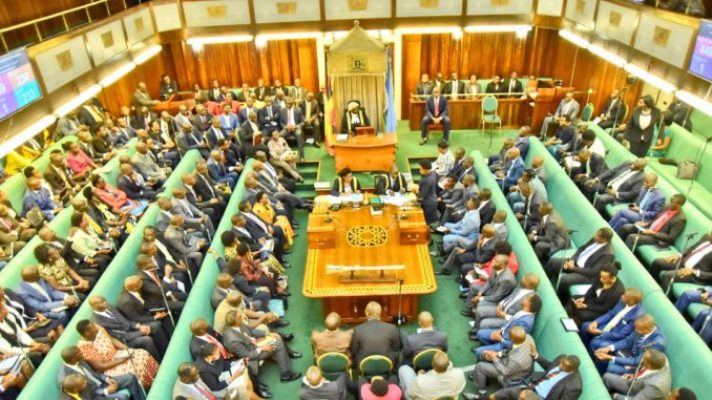Researchers at the Economic Policy Research Center (EPRC) have expressed the need for the introduction of social insurance schemes for farmers to cushion them against eventualities such as the loss of a breadwinner or agricultural produce.
Speaking on Tuesday, at the launch of results of a study in which the policy think tank analyzed prospects of a contributory social insurance scheme for agricultural entrepreneurs, Brian Sserunjogi, a Research Fellow said that they assessed six enterprises and found that farmers retain up to 4 trillion Shillings in income annually and yet they don’t save for themselves like those in the formal sector do. The enterprises they assessed include dairy, maize, coffee, sugarcane, bananas, and beans.
Sserunjogi says since the majority of Ugandan farmers are also low-income earners and earn irregularly, entities like the National Social Security Fund (NSSF) need to think through packages that can target the peak of the two seasons in the year when farmers are earning.
Researchers say that while Uganda is still ignoring farmers, other developing countries such as Kenya, Costa Rica, Ghana, and the Philippines have adopted innovative measures to expand schemes like Uganda’s NSSF to highly informal farmers through three initiatives including signing collective insurance agreements, registering farmers according to their financial muscle and creation of farmer schemes with differentiated contribution rates based on the total value of agriculture production.
Sserunjogi says for instance that such schemes should be made mandatory for all farmers to belong to just as the NSSF for formal workers where one is required to make a 5% per cent contribution and the 10% by their employer. He says their analysis shows voluntary options may not work.
Allan Munabi who heads Strategic Services at the NSSF, said while the new amendments in the NSSF law allow for those in the informal sector to save with the fund, the challenge they face with farmers is that many of them are not in the cash economy.
Munabi says that bigger informal farmers can contribute to the fund through voluntary contribution although he notes that they have not yet got regulations from the Ministry of Gender, Labor and Social Development to guide them on the rates and other technicalities.
However, farmers contacted by URN say a proposal by EPRC to have the government force them to join such schemes is worrying some revealing that the moment they join NSSF, the Uganda Revenue Authority will target them.
Innocent Kato, a Tea Farmer from Kabarole district says that a saving scheme for farmers has been long overdue but adds that they can’t be forced to members as this can even scare away farmers from agriculture, later on impacting production.
Victoria Sekitoleko, a former Minister of Agriculture suggests that instead of focusing on farmers for such schemes, the Ministry of Agriculture needs to use a value-chain approach and register value-chains. She says this is already being done with the coffee and the sugarcane value chain.
However, unlike the current system where NSSF savers have to wait for years to access their savings, Sekitoleko recommends having a system that allows a farmer to have access to their savings in a short period for instance a year.
-URN





